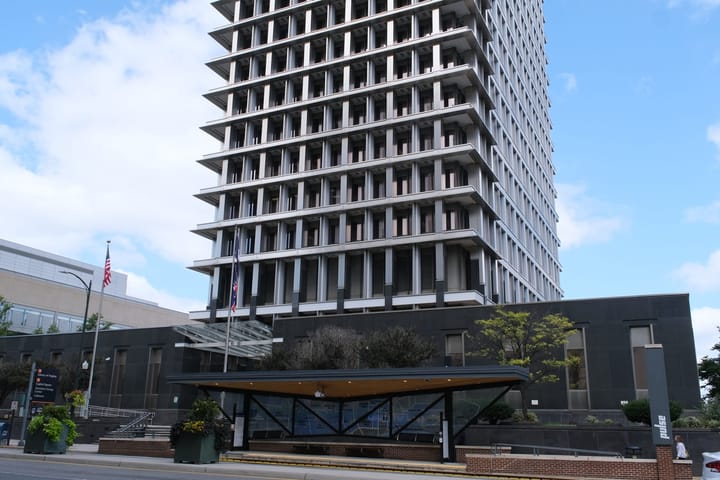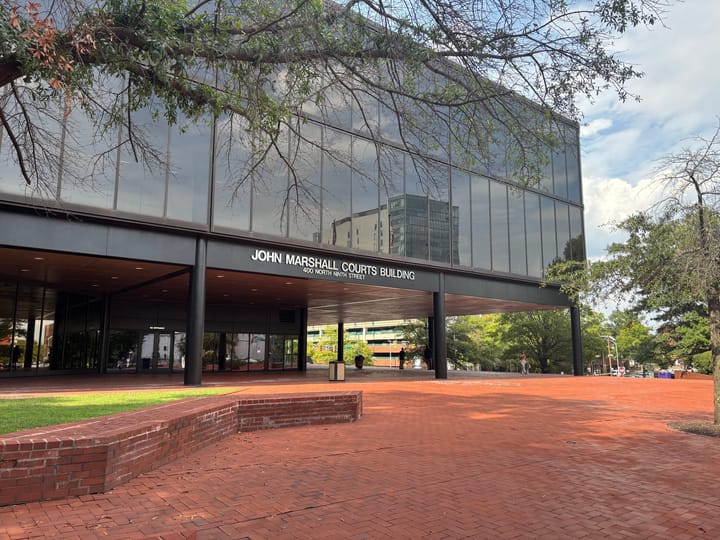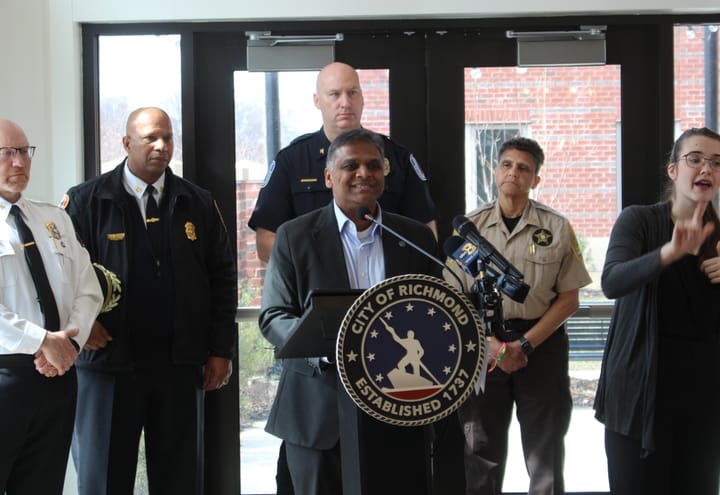How Richmond voters blocked Levar Stoney’s rise to higher office

When Levar Stoney became Richmond’s mayor in 2017, it was widely understood it might be a step on his way to higher office.
Unlike the city’s first two strong mayors, Stoney was a youthful figure just starting a political career. Some worried that could mean a lack of focus on city issues. To others, it wasn’t necessarily a bad thing. Because for Stoney to perform well on a statewide stage, Richmond itself would have to be doing well.
That dynamic appears to be what derailed Stoney’s aspirations for higher office Tuesday, as Richmond voters delivered an overwhelmingly negative verdict on the former mayor even as he racked up strong enough numbers elsewhere to put him within striking distance of winning the Democratic nomination for lieutenant governor.
In the statewide vote totals, Stoney trailed apparent victor Ghazala Hashmi, a state senator who represents parts of Richmond and Chesterfield County, by just a few thousand votes. In Richmond, it wasn’t particularly close.
Hashmi won more than 58% of the vote in the city Stoney led for eight years. That was a bigger margin for her than anywhere else in the state, and the roughly 10,500-vote advantage Hashmi gained in Richmond was more than enough to seal her victory in the statewide vote count.
Some of the Richmond vote numbers are so stark, said longtime political analyst Bob Holsworth, they suggest an almost “visceral reaction” against Stoney.
“The level of the rejection clearly cost him the race despite running — in the rest of Virginia — a very effective campaign,” Holsworth said. “His home base just said we don’t want to promote you. And we’re going to make sure you’re not promoted.”
Stoney formally conceded the race to Hashmi on Wednesday morning, issuing a statement on social media that emphasized he lost by just a few thousand votes out of 485,000 cast and urged his supporters to back Hashmi and the Democratic ticket in the fall.
“I’m incredibly proud of the campaign we ran and the many Virginians who supported our efforts to fight for a fair shot for all Virginians,” the former mayor’s statement said. “Unfortunately, in this primary we came up a little short. But the fight for a fair Virginia continues.”
Stoney ran strong in Northern Virginia, narrowly winning Loudoun County and running just behind Hashmi in Fairfax County. In Prince William County, where local School Board Chairman Babur Lateef was the top finisher, Stoney ran comfortably ahead of Hashmi.
Some of Stoney’s strongest numbers came from rural Southside Virginia localities with substantial numbers of Black voters.
State Sen. Aaron Rouse, who finished a dangerously close third behind Hashmi and Stoney, dominated in his home area of Virginia Beach and the broader Hampton Roads region.
As the six-way primary finished in what was close to an even three-way split between Hashmi, Stoney and Rouse, the final numbers out of Richmond became more significant.
The results in Richmond partly mirrored the two failed casino referendums Stoney pushed for in the city, with support for Stoney strongest in the types of lower-income, majority-Black neighborhoods that supported the casino project.
But in other parts of the city, support for Stoney had almost entirely collapsed.
In some Fan District and West End voter precincts, Stoney was wiped out by Hashmi, occasionally getting fewer votes than fourth-place statewide finisher Alex Bastani.
At the polling location held at Tabernacle Baptist Church in the Fan, Hashmi won 413 votes (78.22%) as Stoney won 18 (3.41%).
In the voter precinct for the Oregon Hill neighborhood, Stoney finished in a tie for sixth place with Lateef, winning just 6 votes compared with 156 for Hashmi.
“The absolute lack of votes in some of these precincts was simply extraordinary,” Holsworth said. “It was unbelievable what happened here.”
In interviews with The Richmonder at the polls Tuesday, many city residents pointed specifically to this year’s water trouble as the reason they were in a mood to support anyone but Stoney.
When asked about his vote for Hashmi and against Stoney, 42-year-old attorney Kelly Martin said it was simple: He lives in a city that can’t seem to provide reliable drinking water.
“That and the failed developments downtown. I’m not sure he’s a competent political leader, in my opinion,” Martin, a Northside resident, said of Stoney.
The Richmonder is powered by your donations. For just $9.99 a month, you can join the 1,000+ donors who are keeping quality local journalism alive in Richmond.
Lamar Townsend, a 38-year-old Shockoe Bottom resident who works in risk management, said it seems like “infrastructure is kind of falling apart.”
“It’s important that we have the right people with the right intent,” he said.
Carolina Park — a 22-year-old doula who lives in Manchester — said she voted for Bastani, a labor rights lawyer who finished in fifth place, because he was “fighting for working class people.”
When she heard Stoney was running for higher office, she said she thought, “Wow, that’s a bold move.”
“Especially after we were seeing these water crises, it’s coming back to things that he had oversight over when he was the mayor,” Park said. “So I think it’s real brave of him to be running for a statewide office now.”
Not everyone had hard feelings for Stoney.
Alice Allen, a 78-year-old retiree who voted at John Marshall High School in Northside, said she felt Stoney was a good mayor and would make a good lieutenant governor. Asked if there was anything specific Stoney did that she liked, Allen said “everything.”
“I liked his ways,” she said. “His thinking… I just wanted to make sure I voted.”
Holsworth said Richmond’s water plant issues — which didn’t spill into the open until just after Stoney left office — built on frustration many Richmonders already felt over two back-to-back casino pushes Stoney made that were both rejected by voters.
“The water issue wasn’t a one-day thing,” he said. “It’s gone on and on and it doesn’t even look like it’s really solved.”
Del. Mike Jones, D-Richmond, said he thinks the city results are a combination of Hashmi’s own outreach to local voters and lingering frustration with Stoney.
“She knows Richmond,” said Jones, who endorsed Hashmi in the race. “She knows both sides of the river.”
A former Richmond City Council member, Jones said there were a few things local voters were upset with Stoney about. For some, it was events surrounding the removal of the city’s Confederate monuments in 2020. For others, it was the failed Navy Hill development deal or the pursuit of a casino.
“He’s got to tell himself, here are the other things that I did,” Jones said. “People don’t talk about the three schools that were built in my district. They’re not going to talk about the community centers and the AAA bond rating.”
In Stoney’s defense, Jones said, being in an executive role like the mayor’s office is a tough job that creates more of a track record for people to find fault with.
“Hell, he was a tight second,” Jones said of the former mayor. “Richmond was mad, but he was a tight second.”
Contact Reporter Graham Moomaw at gmoomaw@richmonder.org. Victoria A. Ifatusin contributed to this story.






